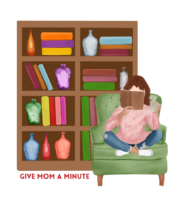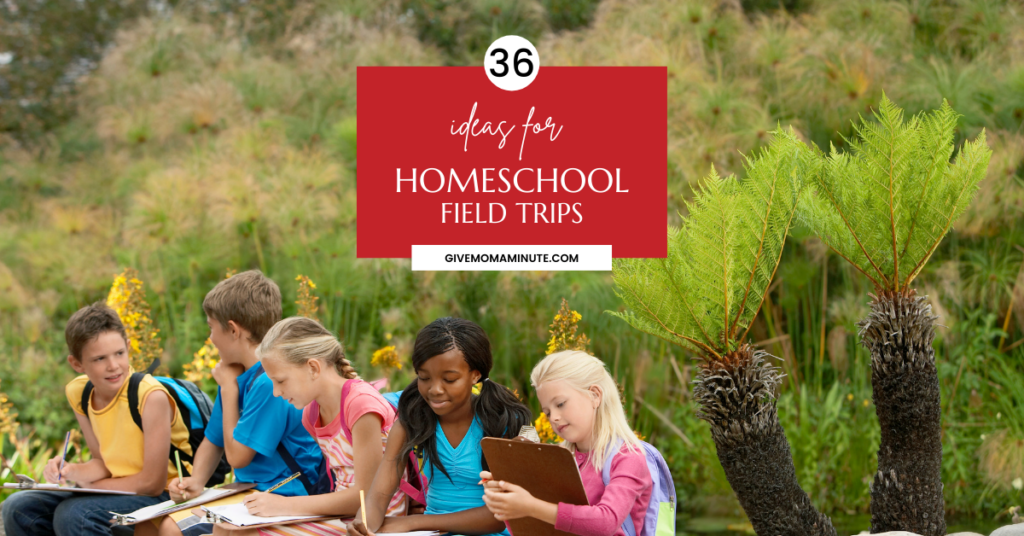Are you looking at school options in your area and shaking your head in dismay? Or perhaps you started homeschooling during the Covid Pandemic and want to continue? If you are wondering, “How Do I Start Homeschooling”, then you are not alone. Thousands of families make the choice to start homeschooling every year. If you don’t have a family member or friend who homeschools then this might be a completely new world for you.
If you want to homeschool, but need to know where to start – I got you.
I Want to Start Homeschool, Where Do I Start?
When you make educational choices for your kids, start by looking at the big picture including your family culture, finances, and logistics. Homeschooling is often described as some idyllic, peaceful setting where kids are learning and growing every minute, and the mom is most certainly not pulling her hair out, right? But, let me tell you – there is a lot of chaos in homeschool settings as well.
What is Your Family Culture?
Does your family enjoy being together? Are you naturally curious and learning from everyday life? Do your kids love science and technology or literature and art? Are you chauffeuring kids around to other activities regularly? Who are your family friends?
There are no “right” answers to these questions, but take the time to think through them before you get started homeschooling. For example, if your current social network is tied up with your kids’ public school, then you need to think through how homeschooling will affect your social support system. (Both for the kids and for the parents).
On the other hand, if anyone is working from home – will they be able to maintain focus while the rest of the family is in the middle of homeschool activities and learning – which is rarely quiet or calm?
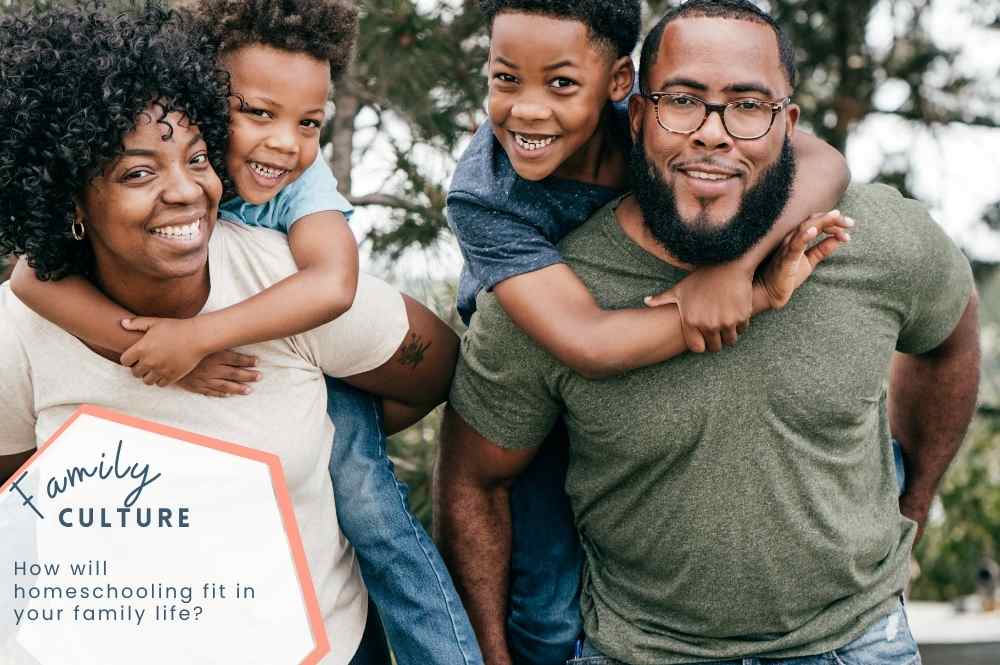
What is Your Personality?
In addition to thinking through your family culture, consider your own strengths and personality type. Can you handle teaching multiple kids multiple subjects at one time? How will you get mom time or time away from the kids? Will you have time and energy to care for your own health?
Again, there is no wrong answer here. If you are committed to your kids and their education, you can be a homeschool mom. Reflecting on your own strengths and passions, though, will help you set boundaries and make plans for when things fall apart.
If you are used to having friends at work or going out whenever you want, this will change when you begin homeschooling. If you are aware of this in the beginning, you can create plans to make the transition a bit smoother.
Pin This for Later
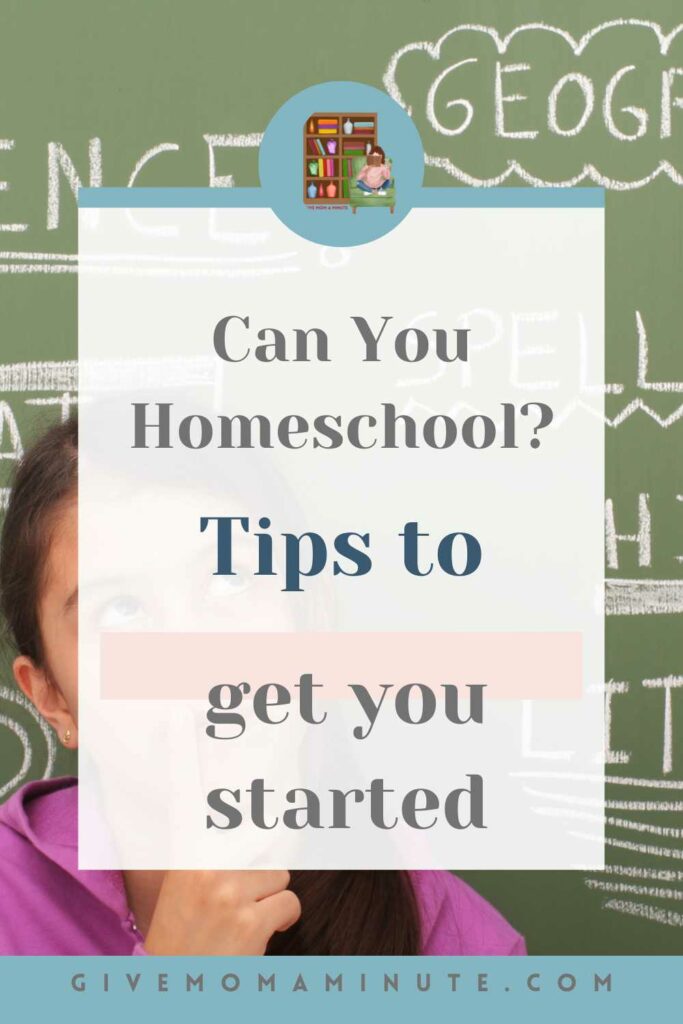
What are the Advantages of Homeschooling?
Welcome to the wonderful world of homeschooling! There are so many benefits to home education including going at your own pace, flexibility, learning what you want, and catering to your kids’ strengths.
It is truly so much fun to see your kids learn a new concept. Teaching my kids to read remains a special memory. You can see the light bulb turn on when they figure out phonics and blending. When you homeschool, you can accommodate your child’s interests and include that topic in any subject. You also have the freedom to slow down when your kid is struggling with a concept or needs more practice in one area.
Remember, you will be with your kids. All. The. Time. As a result, you will know when they have truly understood a new technique and when they are still confused. As a homeschool mom, you can guide your kids at their own pace. Not understanding multiplication? No problem – just slow down and practice a bit longer. Breezing through bar graphs? Do a few problems and skip a couple pages.
We actually started homeschooling for flexibility. I didn’t want to be tied to a school calendar. My oldest has a late summer birthday, so was right on the cusp for starting kindergarten or waiting a year. Once we got started I loved being able to take park days or field trips or schedule doctor appointments whenever we wanted. If your kid is sick, you can just take the day off and catch up another day (especially when they’re younger).
Other veteran homeschoolers will tell you there are several reasons to start homeschooling and many benefits they never expected. It is a wonderful experience, but it isn’t all rainbows and unicorns, either . . .
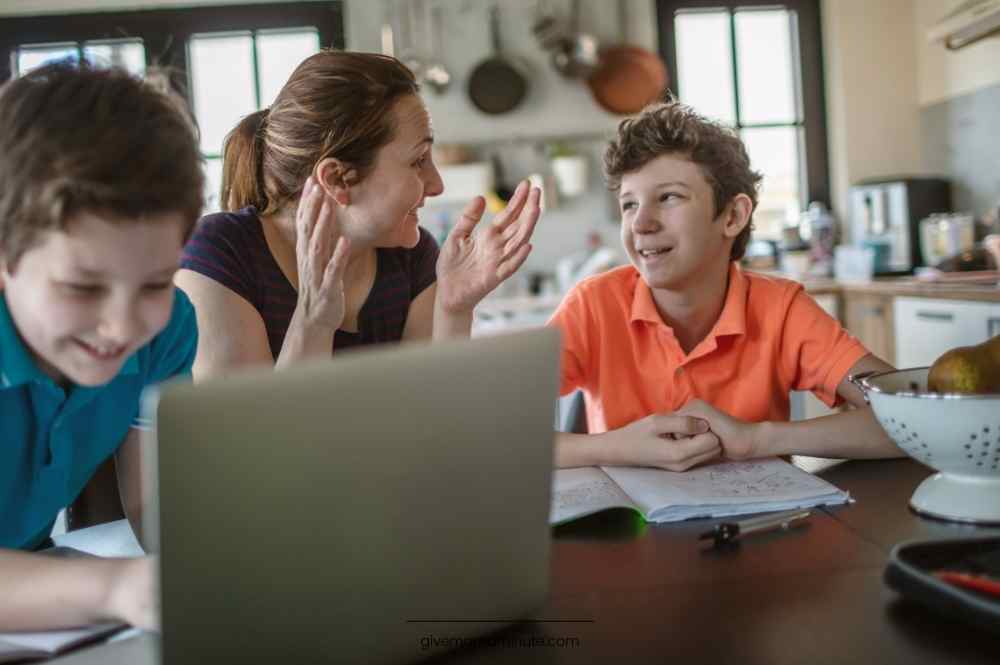
What are the Disadvantages of Homeschooling?
You are in charge. That’s it. That’s the biggest disadvantage. At least it was for me. That means, you, mom, are the one making all the decisions, feeling all the responsibility, shouldering all the doubts, and wondering whether or not you are doing right by your kids. Being a homeschool mom is a significant amount of physical and emotional labor, and you need support.
Whether you are a secular homeschool mom or not, you and your kids need a supportive social network. If you are a secular homeschooler in a conservative area, it can be hard to find an inclusive community. One of the most common questions you will be asked is “what about socialization”? There are generally TONS of socialization opportunities for kids, whether it be through youth sports, 4-H, play days, etc. The challenge is more for the moms. If you are used to being out of the house or working full-time, transitioning to homeschooling can feel very isolating. There are ways to build your own community and to find other families you mesh with, but this is something to be aware of when you are getting started homeschooling.
One other disadvantage to homeschooling, or challenge might be a more accurate word, is deciding what and how you will teach your kids. Will you teach everything yourself? Combine kids? Use Outschool Classes? There are several great secular homeschool options out there. It can be hard to choose one and to keep your FOMO at bay. Every time a new product comes out, you’ll be tempted to drop what you are doing and try that one. (Or maybe that’s just me?)
It’s also possible that you find your groove and are moving right along when, all of a sudden, it stops working. Something changes in the rhythm. Kids develop new attitudes. You have personal stuff going on or a major family health crisis. Then what do you do? Again, the decisions and responsibility lie solely with you, and this can be heavy at times.

Let me be clear. I truly believe in homeschooling as an amazing educational process. I also believe if it stops working for your family, then it’s ok to stop and do something else.
How Do You Homeschool as a Beginner?
Just like anything, once you are in the trenches it can be hard to remember what it was like to homeschool as a newbie. What do you need to know? Is there paperwork? What about friends? How do you choose curriculum? How long will it take? What is the financial commitment?
If you’re a completely new homeschooler, I hope I can answer some of these questions for you. I was lucky to have an older sister who homeschooled and has always been a tremendous help and valuable sounding board. Our curriculum choices and styles of homeschooling are different, but she has wisdom in abundance.
What Do I Need to Know Before Homeschooling?
First thing you need to know is that homeschooling is not easy, you are not going to mess up your kids’ education, and it’s okay to change your mind. Were you expecting checklists of school supplies and books? I think the mindset is so important. You have to know what you are getting in to and also know that just because you decide on something doesn’t pigeonhole you into that choice for the rest of your life. There WILL be gaps in your kids’ education. There will be times when you completely lose your cool (or your kids lose theirs), and yet you will find a way to repair relationships and keep learning together.
As for the nuts and bolts of things you should know before homeschooling – you want a plan for the four core subjects at a minimum. These are language arts (reading, writing, spelling, grammar), math, science, and social studies. You can combine multiple kids, teach with an eclectic assortment or a whole package. These choices are up to you, but do spend some time to create a plan for the four core areas.
Once you have a plan for core subjects, then choose an elective or two that your kid is interested in. This could be something simple like baking or an art project. It could be swimming lessons or chess club.
My biggest piece of advice is to UNDERSCHEDULE. As a newbie, you can always add in more electives as you build a rhythm in your homeschooling home. However, if you make a giant plan and then get behind, it can just feel like daily overwhelm. You want your day to be structured enough that you know you are homeschooling, but not so structured that your kids have no downtime. (For you unschoolers, who thrive on less structure – don’t come at me. 🙂 )

How Many Hours Should You Homechool?
There is no right answer here, and some will depend on which state you live in. Some states will have hourly requirements for homeschoolers. I love the Charlotte Mason philosophy of keeping class times very short – especially with younger kids. Generally, their age plus minute. In the early years, kindergarten would take about an hour to an hour and a half of structured school time, but most of our day was spent playing, both indoors and outdoors.
To make this a little more realistic, I always tried to be finished with school before lunchtime. Partly, this is because i was always working and I needed the afternoons to work. My husband used to come home for lunch, so it was much easier if we were done with school by the time he came for his break. As the kids got older, our school days might extend past lunch, but that was mostly due to having lots of kids. If focused, my oldest usually spent 2 to 3 hours on school work.
Ultimately, the schedule will be up to you. Do you want more frequent breaks? Try a morning session, then an hour break, then another hour session – or however you need to break it up. If you start school at 8 a.m., though, and are still struggling to get through by 5 p.m. – my advice to you is to cut something. Make it manageable and fun. Allow for extra time to work through whatever your kid needs, but don’t make them sit at the table staring at their reading book for hours on end.

What Age is Best to Start Homeschool?
Again, the best age for getting started homeschooling will depend on your state and your family. If your kids are young and ready for kindergarten, your state probably has a law about compulsory attendance laws. Most states have this set between the ages of 5 and 7.
If your kid has already been in a public or private school environment, you will need to check your state laws to understand the process for transferring to homeschool. Most states will have this on the Department of Education website, and it is pretty simple.
It’s never too late to start homeschooling, though. Your kids can start in middle school or high school even. If you start after your kids have been in a different school environment, be sure to take the time to deschool them.
How Much Does it Cost to Homeschool My Child?
If you are on a tight budget, homeschooling can work for you. If you have cash to spare, homeschooling can work for your family, too. When I first started I gave myself an annual budget of about $500 for school supplies for my 4 kids for 1 year. We used the library and community resources a lot. I purchased books from ThriftBooks or ebay.
Once we moved to Colorado, we attended a charter school that worked with homeschoolers and provided financial assistance. It was great! So, there is no definitie answer to how much it costs to homeschool – but it can be done very frugally if you need to do it that way.
I have found that for my family, there are some things that are just worth buying. For example, I get a lot of our literature books from the library, but I purchase our spines every year. Spines are books you will use all year long, and those library fees add up if you keep them too long!
I also spent money on quality art papers/supplies and science materials. If I tried to substitute items for science labs, then they would end up not working. Having the right art supplies (that we only used for school projects) also increased our success rate. I’m not a natural artist, so we needed all the help we could get.
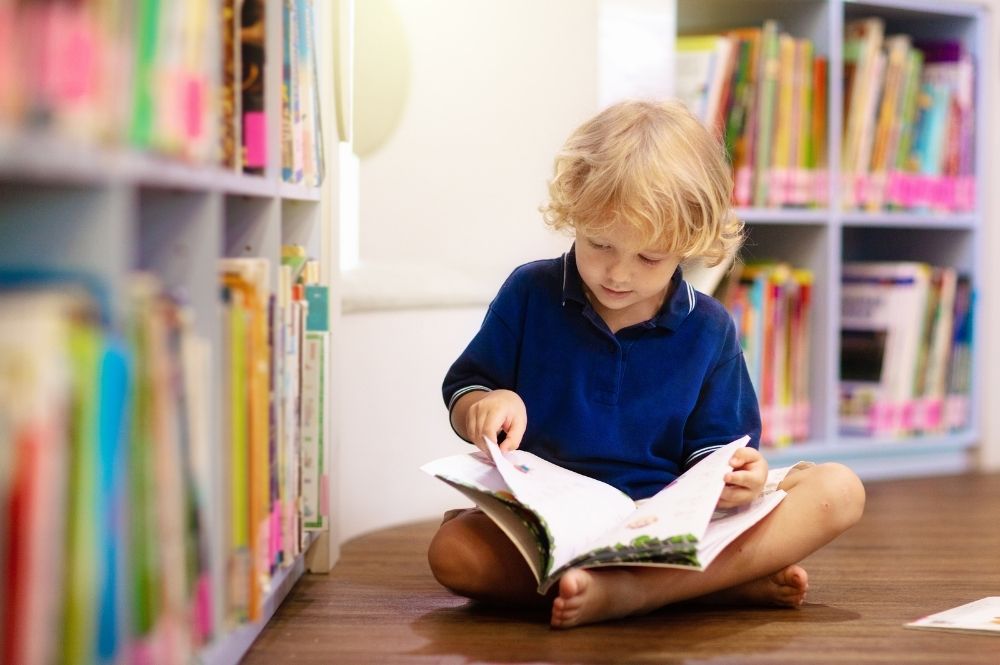
It’s Okay to Change Your Mind
Like I mentioned above, it’s okay to change your mind. Whether you change your mind about your curriculum, or your schedule, or your decision to homeschool entirely – it’s okay. We make the best decisions we can at the time. Sometimes our favorite curriculum just stops working. Sometimes our kids are going through something heavy. Sometimes it’s us moms dealing with burnout. When that happens, it’s okay (and good in fact) to pivot and try a different thing.
The Beginning Homeschool Checklist
- Write down your personal/family reason for homeschooling
- Choose your homeschool curriculum
- Do you have the four core areas covered: Math, Social Studies, Science, ELA
- Resources and materials for electives
- Basic idea of how the schedule will fit your family:
- Prevention plan for mom burnout
- Familiar with your state’s homeschooling requirements
What other questions do you have about starting to homeschool? Drop them in the comments and I’ll get you some answers. Don’t worry, mamas, you got this. Every good homeschool has moments of trial and error. Sometimes it takes a while to find your groove, but you can do it.
